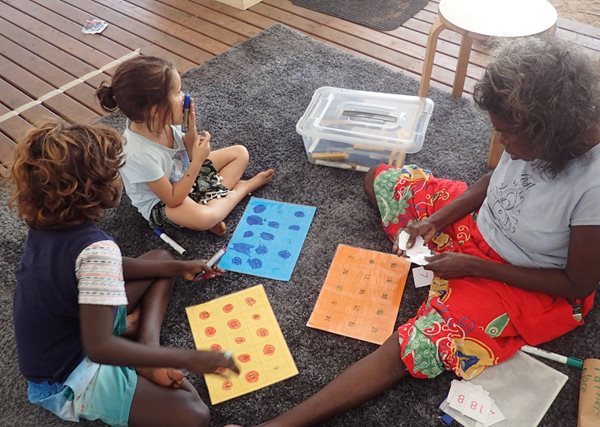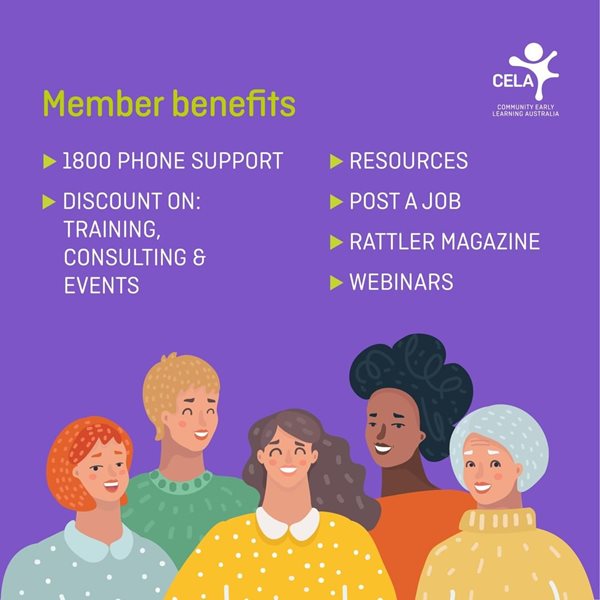Early education workforce shortages are increasing across Australia, exacerbated by the effects of COVID-19. Many overseas-born early childhood educators returned to their home countries this year and may not be back, while many early childhood education students have had their graduations delayed as they have been unable to undertake placements this year.
New approaches will be needed to ensure we can build the workforce we need – particularly in regional and rural areas.
CELA Research and Policy Manager, Megan O’Connell, takes a look at what measures are being put in place for the long term, and what we can do immediately.
By Megan O’Connell
Workforce challenges are particularly acute in rural, regional and remote areas of Australia. In their 2019 Workforce Report, ACECQA highlight particular issues for single service providers. These services often lack resources to implement recruitment and retention systems and are less likely to be able to provide comprehensive support and professional development for their staff. Small providers and rural and regional areas are acutely aware of these issues, which amplify existing challenges around attracting skilled staff to a regional or remote area.
We do not have current, up to date workforce data in Australia, so cannot precisely quantify the levels of skill shortage. However, we can use staffing waivers as a guide. The levels of temporary staffing waivers increase according to regionality, with over one in eight remote services challenged to find skilled staff.

Figure 1 ACECQA 2019 Workforce Report
ACECQA has been asked to lead the development of a ten-year workforce strategy and supporting action plan. Consultations will take place in 2021.
Innovative initiatives in regional and rural Australia
A range of innovative initiatives are working to build the education workforce across rural and regional Australia.
Thriving Futures – helping communities to build their local workforce
Child Australia has just launched an early childhood education partnership, Thriving Futures, to build a workforce strategy for the Pilbara area. Thriving Futures is operating in the communities of Headland and Newman. The initiative is funded by the BHP Foundation.
The initiative aims to improve developmental outcomes for children by building the capacity of the workforce. The initiative provides local learning and development opportunities for the existing early childhood workforce to improve their understanding of child development and the ability to support children.
Increasing the supply of early childhood educators and teachers is a focus which is being addressed by promoting early childhood education pathways. This includes providing a supported pathway into courses, scholarships and mentoring to attract school leavers and community members into early childhood education and care courses.
Thriving Futures is working with a range of local early childhood education services, supporting them to build their workforce and attract new entrants by providing a co-ordinated recruitment and professional development program for the region. Unlike other initiatives aimed at attracting trained staff to rural and remote areas, Thriving Futures is helping communities to build their own local workforce.
Nawarddeken Academy – overcoming remote community early education challenges
Every morning, three hours a day, five days a week, children attend the Kaldurrk Early Learning Program with their mothers.
The children and their mothers come to a balabbala – a safari tent that is a welcoming space full of learning resources.
 Image credit: Nawarddeken Academy
Image credit: Nawarddeken Academy
They are guided through a series of learning games and enriched care based on the 3a Abecedarian model.
The program is based on the Families as First Teachers model. The families as First Teachers (FaFT) program is an early learning and family support program for remote Indigenous families.
The model delivers benefits not only to children but their parents too. Mothers are intrinsically involved in their children’s learning, with some mothers paid for leadership roles in the program. The focus is also on professional learning for mothers.
A range of professional learning opportunities have been provided to the mothers since the program began, including visits to early childhood centres in Darwin, access to courses, and visiting early childhood experts.
Despite this success in preparing children for school – the children are deemed to have not attended preschool as the program doesn’t meet the strict definition.
And because of its innovative setting and model, securing ongoing funding for a much-needed program remains a challenge.
What you can do right now
Individual services can play a key role in building their own workforce, particularly in regional and rural communities. Here are some things you can do:
-Talk to your staff about upskilling
- Do staff know about higher-level qualifications?
- Could you support staff to undertake training?
- There are organisations, like Future Tracks, that can support you on this journey.
-Think about employment models like traineeships.
- At the moment there are significant incentives, a 50% wage subsidy, for employers to hire a new apprentice or trainee. A variety of people undertake traineeships, from young people to women returning to the workforce and people from diverse backgrounds.
-Could a placement complement your staffing profile?
- Consider taking a TAFE or university student on a placement.
- Placements are a great way to help students develop skills, and to test out potential new employees too. This year lots of students have been unable to complete placements due to COVID-19 – until they can complete these placements they cannot graduate.
CELA can help you navigate these issues – please reach out to us with any questions or concerns.
ECEC Workforce Survey
Share your thoughts to help us inform the government on what can be done to build and maintain the ECE workforce
The quality of our early childhood workforce makes a huge difference to the quality of program delivery – but we do not have up to date data across the country about who the workforce is, and what the pressure points are. That’s why we’re conducting this survey.
The workforce survey will provide CELA with up to date data on the workforce of CELA members – who you employ, their qualifications, and the challenges you have faced recruiting.
We will use this data to inform our policy work and advocacy, including to inform the government about the magnitude of workforce shortages within our membership and what can be done to build and maintain the early childhood workforce.
https://www.surveymonkey.com/r/PCGBHWM
Got a workforce-related story to share?
We would also love to hear any stories you are happy to share about your workforce successes and challenges. Stories from our members are vital to help support our advocacy to government.
Please share your stories with meganoconnell@cela.org.au
Become a CELA Member
CELA provides professional support to navigate the ECEC environment.
